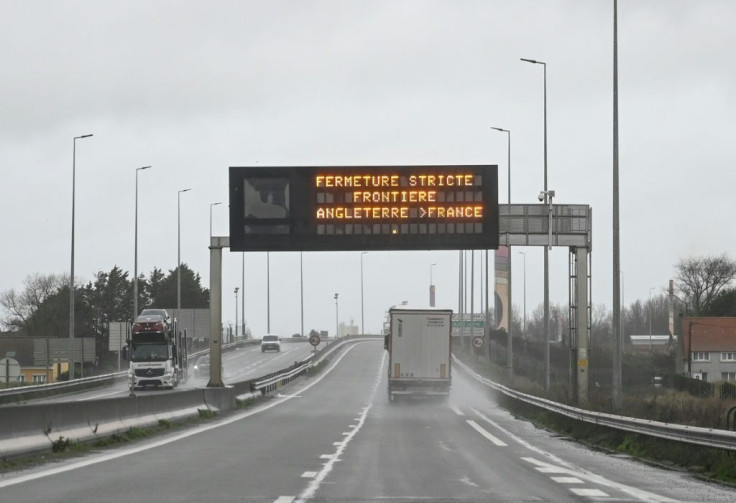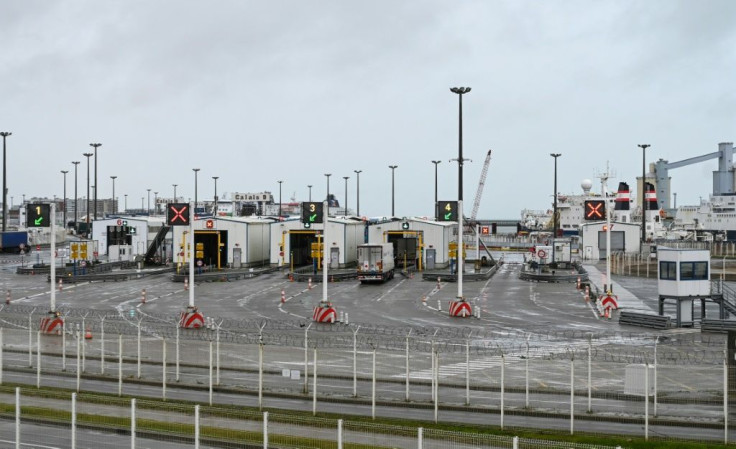Eerie Calm In Calais As Britain Travel Ban Takes Hold
The ferry terminal at the French port of Calais, a bustling epicentre of cross-Channel traffic, fell nearly silent Monday after authorities halted arrivals from Britain over a new Covid-19 strain.
Hardly any cars were in the vast parking lot, and just one person stood at the currency exchange desk -- a local woman changing money for her employer.
Eduard, a Romanian who lives in Birmingham, was among the few buying ferry tickets to the UK after France warned that nobody would be allowed to enter from Britain for 48 hours.
"I left my family in England so I could visit my father, who is ill, and now I'm going back," he told AFP.
Others were less lucky, unable or unwilling to make the trip without any certainty they could return as planned.

Despite heated complaints to an agent, Robert, who lives in Paris, was refused boarding although he had a ticket for a Christmas visit to his son in London.
"I travelled 300 kilometres (190 miles) to get here and the only thing to do is go back -- my son lives in a red zone and isn't allowed to have any guests," he said.
Marisa Fernandes was returning to Peterborough, England, to celebrate Christmas with family, but her traveling companion, the father of her sister-in-law, was worried he wouldn't be allowed back to Luxembourg.
So she went on alone. "What else can we do? We'll see in 48 hours," she said.

Agents at the terminal fielded a flood of calls from people asking if ferries were running. The answer is yes, but don't plan on getting back while the ban is in place.
That prompted trucking company owners like David Sagnard to cancel trips on Monday -- an abrupt end to the wave of shipments to Britain in recent days as companies built up stocks in case of a no-deal Brexit on January 31.
"Twelve vehicles were to leave today, half from the port, the others taking the Channel Tunnel," said Sagnard, who is also the regional president for the French truckers' federation FNTR.
"In an ideal world, the ones delivering to London and the surrounding region would be back tonight, and the ones heading to the Midlands would be back tomorrow," he explained.
Sagnard said his decision would cost around 10,000 euros (9,200 pounds, $12,200).
"We're thinking about finding a solution for transporting without drivers, by using containers, but in Dover the traffic jams are so bad that vehicles trying to pick up a trailer would never reach the port," Sagnard said.
Jean-Marc Puissesseau, president of the Port of Calais, confirmed that Dover was overwhelmed. "We're going to try to ask them to create more access lanes for the non-accompanied transport zone," he said.
Hardly any other trucks were rolling under grey overcast skies outside the terminal, and the only activity at the Channel Tunnel access points came from French police patrolling against migrant bids to sneak through.
"The question is, What is going to happen when these 48 hours are over? Nobody knows," said Sebastien Rivera, another regional official for the FNTR trucking federation.
© Copyright AFP 2024. All rights reserved.





















